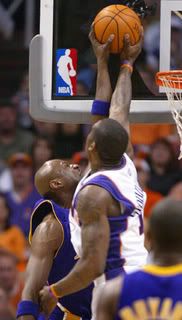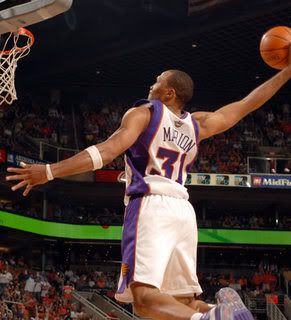Now gentlemen, in this country our courts are the great levelers, and in our courts all men are created equal. I'm no idealist to believe firmly in the integrity of our courts and of our jury system. That's no ideal to me. That is a living, working reality. Now I am confident that you gentlemen will review without passion the evidence that you have heard, come to a decision, and restore this man to his family. In the name of God, do your duty. In the name of God, believe Tom Robinson.
Justice can prove too nebulous a concept to properly define in any given context. It involves compromise, a removal of self-evident rights and wrongs to reach a conclusion that pleases no man. Justice is reliant on our faith in a higher power, a sense of equity amongst a grander scheme than we can conceive with human minds. Yet we so often fail to achieve justice because we remove that standard in favor of our own tendencies to favor what is best for us personally.
When a person says that he wants justice, he is really saying that he wants vindication for a wrong that has been committed against him. This is the great fault of our court system, that man is allowed to inject his personal feelings into the pursuit of something that he can never rightfully obtain. Justice is objective, and objectivity goes well beyond any one man's cognitive capacity. We are human. We are emotional. We are subjective. It is a law as natural as Karma.
This condition has led to the erroneous belief that justice is found by weighing what we assume to be right and wrong, balancing the opposing views via attrition. We believe that mutually negating circumstances will lead to a just conclusion, which is really nothing more than deciding whether more rights have been committed than wrongs, or vice versa. This is not justice - it is moral economics, wherein he who has the most evidential gold wins the case.
Only the bravest of men challenges his own instincts in pursuit of justice. Only the strongest of men stands up to the criticism and accusations that he has acted in self-interest, whether his self or someone else's. Only the wisest of men realizes the fruitless nature of the pursuit and admits failure upon completion of his argument. He need not apologize for this failure, as his cause is "good," if not entirely righteous. The only requirement is that he allow Truth to guide him. For this, no man can be accused of doing "wrong".
Aside from human nature, among the enemies of justice are ego, deceit, and hypocrisy.
Ego is a quality of man alone, and it is what prevents him from admitting fault in his own missteps along the path to justice. It also prevents him from considering all necessary information when determining a just course of action because ego, more than all other human traits, convinces us that the decision is ours and ours alone. It tells us that our minds are sufficiently capable of determining what is just, despite the intrinsic objectivity of justice. How else can man be so certain that his emotions are not guiding his decisions if not for that belief?
He does so through deception - both of others and of himself. The mask of objectivity is the greatest lie put forth by our judicial system. Deceit allows us the comfort of coming to conclusions that we can only hope are just, rather than those that actually are just. We have laws, and we have punishments for violating those laws. We assume that, because the laws were written with the best intentions of society in mind through processes involving much debate and input, they must in truth be objective. We lie to ourselves because to admit the truth (that these laws and punishments are in fact based on subjective beliefs of how a person "should" act in his society) is to accept that we are not in control. Man's ego, in essence, forces him to lie to maintain his sanity.
It is very difficult, if not impossible, to control those factors of the human condition. The best that most of us can do is to recognize when we are guilty of succumbing to the pull of our own nature, and do what we can to minimize the effects on our decision-making. Unfortunately for the cause of justice, man is much more likely to form grand inconsistencies in thought and behavior, taking comfort in short-sightedness instead of facing the discomfort of violating his own beliefs. Hypocrisy serves as a short cut through reason, and any challenge to such is most often dismissed as "sour grapes" or "beating a dead horse."
Interestingly enough, humans seem inherently to recognize the differences between justice and its opposite, though most are unable to articulate those differences. Instead of peeling back the rights and wrongs of a situation, people tend to pile them together, search for which is the last on top, and determine that as their justice or injustice. In general, man is unable to cut through the rights and wrongs because that would mean tossing aside their own beliefs of both. Man's personal "right" is his evidence, and to him, to toss it aside looking for the Truth is akin to cutting off his own arm in order to fit through a narrow door.
It is this inability to articulate that allows instances of injustice to fester through time. A person cannot be satisfied until that instance has been resolved, and it cannot be resolved as long as he and his opposition fall victim to their own egos, deceit, and hypocrisy. It turns into a tedious cycle of accusations and repetitive defense, and people would just as soon give up the fight than pursue justice to its resolution.
I am not suggesting that I am brave, strong, or wise. I am, however, suggesting that David Stern is none of them.
The judgements have been made, and the punishments have been served. It has become an academic argument that will continue to flourish until everyone involved learns as much as possible from it. No learning can occur as long as one man is allowed to sink into cowardice, avoiding the consequences of a rash, short-sighted decision that he made. There were many possibilities to consider before making any decisions on suspensions. To wit...
Rule 12, Section VII(c) of the NBA Official Playing Rules says: "During an altercation, all players not participating in the game must remain in the immediate vicinity of their bench. Violators will be suspended, without pay, for a minimum of one game and fined up to $50,000.
The rule does not say "suspended the very next game." It simply states, "one game."
That, my friends, is the injustice committed by David Stern.



3 comments:
Yes, but had the Emissioner allowed Stat and Diaw to play game 5, he wouldn't today have anytime access to Tony Parker's garage (and the fragrant treasure within).
Thanks for starting off with a clip from one of my all-time favorite movies, and an all-time hero, Atticus Finch.
I'm thinking you have every right to wail forever about last spring's travesty of justice, but your "I'm as mad as hell and I'm not going to take it any more" rant over the Net works, but is getting a bit old to me and I believe some Redemption (Shawshank or other) should be a new theme.
Let's move forward and upward (not backward and downward) with the rising (not setting) Suns!
What's done is done. A new season, the dawn of a new day, and I hope, a new way. (sorry if this is a bit corny - it's been a loooooong day, dealing with installing/upgrading/messing with three home computers.
Time for the next installment of As the Suns Turn! Let's see them turn some Magic, Tricks.
Complex scenarios can sometimes be most concisely summed up though limericks:
Stern came to the '07 Spurs hoping
To strike a deal to watch Longoria soaping
Her bald genitalia
In full-blown regalia
and view clips of Parker's sex groping.
Had Stern been more computer literate he could have just gone to http://www.paparazzi.com and seen all the Longoria camel-toe clips he could handle. But, alas, he instead managed to F*U*C*K the Suns in a desperate attempt to F*U*C*K himself while watching Parker F*U*C*K Longoria. Basically, in the end, all interested parties got F*U*C*K*E*D one way or another.
Post a Comment